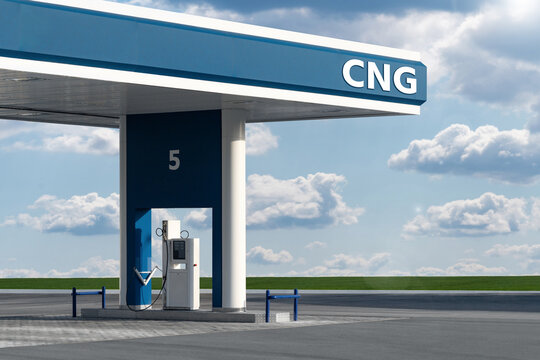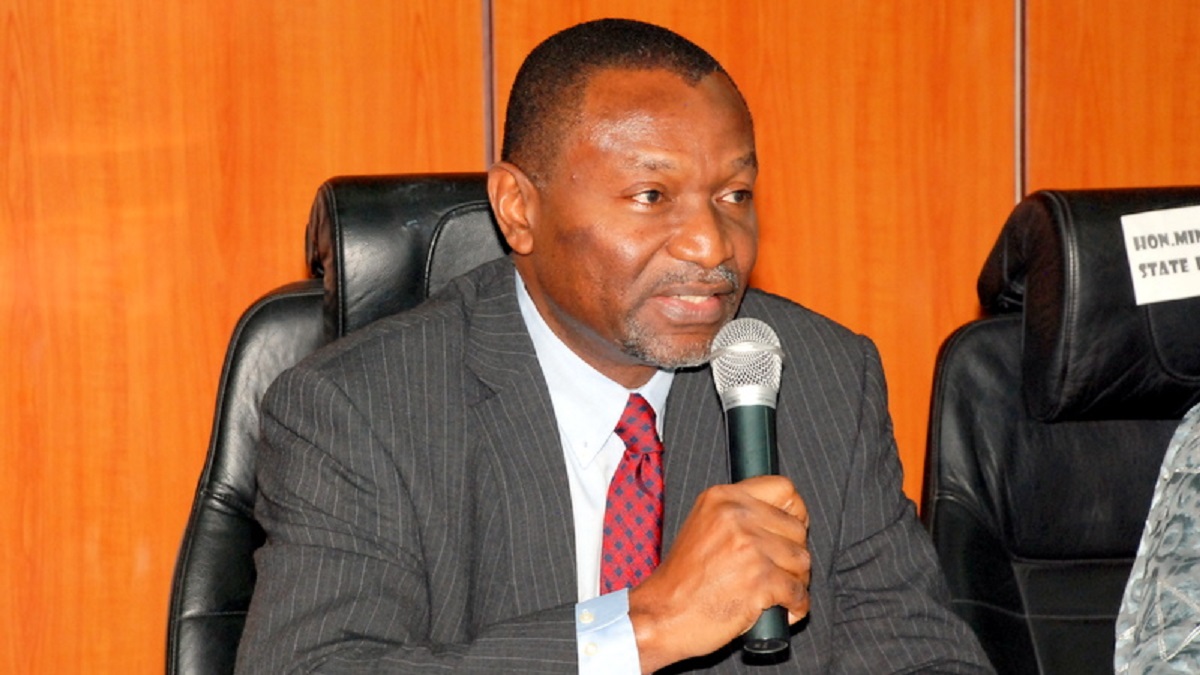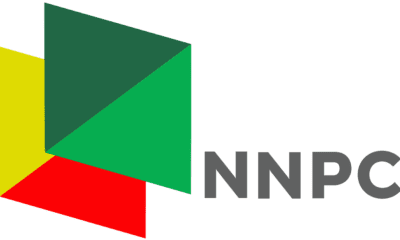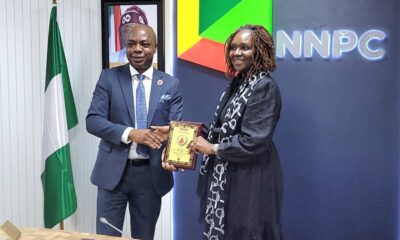Energy
NNPC Ltd’s contract approval threshold upped by $10m

The Federal Government has upped the contract approval threshold for the Nigerian National Petroleum Company (NNPC) Limited to a minimum of $10 million or its equivalent in naira.
Recall that President Bola Tinubu, in an Executive Order signed in Abuja, also directed that the approval period for every of the contract stages should not go beyond 15 days, while the duration for third-party contracts awarded under the production sharing contract (PSC) or Joint Operating Agreement (JOA) was increased to five years from the three years, with the option of additional two years renewal, thereafter.
He lamented that comparative analysis of global oil and gas sector operations showed that the contracting cycle within Nigeria’s petroleum sector exceeds global industry standards by four to six times and was adversely affecting the country’s and ability to attract potential investors.
He added that the Federal Government was committed to improving the investment climate and positioning Nigeria as the preferred investment destination for the petroleum sector in Africa.
Tinubu explained that the directives were aimed at shortening the procedure for getting approval for contracts, facilitate businesses, enhance the ease of doing business and reform the contracting process in the Nigerian petroleum industry.
He stated that the directives would simplify and compress the contracting cycle to a period of not more than six months, in alignment with global industry practice; raise the contract approval thresholds to account for the rate of inflation among others
To ensure this is enforced, Tinubu said, “The Ministry of Finance Incorporated (MOFI) and the Ministry of Petroleum Incorporated (MOPI) shall ensure that this threshold will be reviewed and adjusted in line with the rate of consumer inflation as disclosed by the National Bureau of Statistics on a yearly basis.
“NNPCL and Nigerian Upstream Investment Management Services Limited (NUIMS) shall, in collaboration with the Nigerian Content Development Monitoring Board (NCDMB) and industry stakeholders, simplify the contract approval process and adopt a single level of approval by NUIMS and NCDMB at each contract stage including prequalification, technical, commercial and final approval stages.
“The NNPCL and NUIMS shall ensure that all approvals or consents required to be given by it for contracts and procurement for each contract stage pursuant to the terms of PSCs or JOAs are issued within 15 days from the date of submission of application by the relevant party to the PSC or JOA.
“The NNPCL and NUIMS shall communicate its decision to the applicant within the time-frame stipulated under subparagraph (2) of this paragraph. Where the NNPCL and NUIMS fail to communicate its decision within the aforementioned timeline, the approval or consent shall be deemed granted.”
The president also directed the NCDMB to ensure it reviews any Nigerian Content Plan (NCP) submitted to it within the 10 days stipulated in the Nigerian Oil and Gas Industry Content Development (NOGICD) Act, adding that where no response is communicated to the applying company, the NCP shall be deemed approved.
He also stated that any application for expatriate quota in the petroleum industry shall be directed by the NCDMB to the Ministry of Interior or any other relevant Ministry, Department or Agency (MDA) within 10 working days, provided all supporting documents are in place.
“Where any matter requires the approval, satisfaction or consent of the NCDMB and no timeline is provided under the NOGICD Act, the NCDMB shall communicate its decision on such matter within 15 days of receiving a request to that effect, failing which the NCDMB shall be deemed to have approved, satisfied or consented to such matter,” he added.
Energy
Nigeria’s Adekeye emerges Chairperson, APPO Training Directors


Nigeria’s Folashade Adekeye has emerged as the Chairperson, Forum of the Directors of Oil & Gas Training & Vocational Education Institutes of the African Petroleum Producers Organization (APPO).
Adekeye, who is the Director, NNPC Academy, took over from the former chairperson, Mr. Abdelkader Guenone, the Managing Director of the Algerian Petroleum Institute (API), during the second meeting of the Forum, in Abuja, at the weekend.
Adekeye, who heads the NNPC’s oil and gas training arm, brings into the role over 30 years of experience, and is expected to work with her colleagues from APPO Member Countries in order to foster more collaboration towards addressing the challenges of competences, skill gaps, infrastructure, and poor funding in the organization’s training institutions.
Earlier in his keynote address at the opening ceremony of the meeting, the Group Chief Executive Officer of NNPC Ltd., Mele Kyari, represented by Inuwa Danladi, Executive Vice President (Business Services), emphasized the importance of a standardized educational and training approach to meet the changing demands of the oil and gas industry.
Also in his keynote address, APPO’s Secretary General, Dr. Omar Farouk Ibrahim, charged the Member Countries to work towards further enhancing collaborative efforts to establish Oil & Gas Centres of Excellence across the African continent.
Dr. Ibrahim, also from Nigeria, said having good knowledge of the Forum’s challenges would enable APPO Member Countries to make recommendations and provide solutions in areas such as Oil & Gas project funding, technology adoption, and the formation of Africa Energy Bank.
He concluded that such collaboration by all member countries will guarantee Africa’s energy accessibility, affordability and sustainability, which overall, will strengthen her economies and bring prosperity to its citizens.
Energy
FG may fund installation of CNG pumps as marketers lament high cost


The Federal Government may consider assisting independent fuel marketers with funding to install Compressed Natural Gas sales pumps at filling stations across the country, newsmen has learnt.
This followed the lamentation of the Independent Petroleum Marketers Association of Nigeria that its members were unable to finance the installation of CNG sales pumps at their filling stations in line with the presidential directive promoting the CNG initiative.
The marketers said the cost of installing CNG pumps was prohibitive for its members, adding that the high-interest rate charged by banks also made borrowing money for the project an unattractive option.
President Tinubu had announced an end to the fuel subsidy era during his inauguration on May 29, 2023, a move that triggered a hike in the cost of the product.
The President, however, promised to roll out measures, including CNG-powered mass transit buses and tricycles, to cushion the impacts of the subsidy removal. After almost one year in office, that initiative is set to come to life.
According to presidential aide, Bayo Onanuga, the Federal Government planned to launch its compressed natural gas initiative in May ahead of President Bola Tinubu’s first anniversary.
“In all, over 600 buses are targeted for production in the first phase that will be accomplished this year,” he said in a statement.
“A new plant on the Lagos-Ibadan Expressway will assemble thousands of tricycles. The SKD parts manufactured by the Chinese company, LUOJIA, in partnership with its local partner to support the consortium of local suppliers of CNG tricycles are set for shipment to Nigeria and are expected to arrive early in May. About 2,500 of the tricycles will be ready before May 29, 2024,” he added.
Onanuga said the Federal Government was targeting the purchase of 5,500 CNG vehicles (buses and tricycles), 100 electric buses and over 20,000 CNG conversion kits, in addition to spurring the development of CNG refilling stations and electric charging stations.
“With necessary tax and duty waivers approved by President Tinubu in December 2023, the Presidential CNG Initiative committee is partnering with the private sector to deliver the promise of the initiative. The private sector has responded with over $50m in actual investments in refuelling stations, conversion centres, and mother stations,” he said.
Also, the FG, through the Chief Executive Officer of the Nigerian Midstream and Downstream Petroleum Regulatory Authority, Farouk Ahmed, had issued a directive mandating oil marketing companies to instal CNG pumps in filling stations across the country.
Ahmed, who described the push by the Federal Government to encourage the use of CNG as an alternative to petrol as a revolution, said the government was determined to reduce the burden of petrol on the economy. As such, the government said intending retail licensees would now be required to establish CNG points in their filling stations before getting final government approval.
He said, “We want to reduce the burden of the importation and consumption of PMS. We explored the possibility of converting the energy requirement of retail outlets and depots by the stakeholders here going into solar, but there is a high entry cost. We have discussed that, and it is going to be in phases. By doing so, we will reduce the demand for diesel in terms of powering our generators by utilising solar options. Once we are done with consultations, we will require that CNG add-ons be put in petrol stations and for new applications, one of the requirements will be that you must have a CNG add-on in the petrol station.”
Energy
ANOH gas project can provide electricity for five million homes — Seplat Energy


The board chairman of Seplat Energy, Udoma Udoma has announced that the newly inaugurated Seplat Energy ANOH Gas Processing Plant can generate electricity for 5 million Nigerians.
Udoma stated this at the commissioning ceremony of the plant, held in Ohaji, Imo State, by President Bola Tinubu.
Built by the ANOH Gas Processing Plant Company (AGPC), the plant is a joint venture equally owned by Seplat Energy and the Nigerian Gas Infrastructure Company (NGIC), a subsidiary of the Nigerian National Petroleum Corporation (NNPC).
The plant achieved mechanical completion in December 2023, recording no Lost Time Incidents (LTIs) over 12 million man-hours.
With a Phase One processing capacity of 300 million standard cubic feet per day, the ANOH plant is set to deliver dry gas, condensate, and LPG to both domestic and international markets.
Tinubu praised Seplat Energy and its partners for their efforts, stating, “Today is a great day of achievement demonstrating teamwork, commitment, and dedication to duty. I congratulate you for all you have done for the country and for fulfilling this in only 11 months.
“The ANOH gas project strongly aligns with Seplat Energy’s mission of leading Nigeria’s energy transition with accessible, affordable, and reliable energy that drives social and economic prosperity.
“As a testament of our pledge to Nigeria, in partnership with the NNPC Ltd, we have delivered this project that will support the current administration’s drive for industrialization and growth of the economy through low-cost reliable power.
“To put this into context, if all of the gas from this plant went into the power sector, it would produce enough electricity to transform the lives of over 5 million people. Given that Nigeria’s population is growing at a rate of over 5 million per annum, we need one of these plants a year every year just to meet the demand of our new arrivals.
“We appreciate the unwavering support of our partner NNPCL, the cordial relationship with our host communities, Imo state government and the support of all stakeholders that are too many to mention,” Udoma added.
CEO of Seplat Energy, Roger Brown, remarked, “Seplat Energy is pleased with the progressive reforms by President Bola Ahmed Tinubu and his administration. In March 2024, the President signed executive orders to enhance investments in greenfield gas development and midstream capital projects.
“Also, the Nigerian Midstream and Downstream Petroleum Regulatory Authority (NMDPRA) recently improved gas prices under the DSO, to trigger further investments to the domestic gas sector – our ANOH gas plant will benefit from these reforms and incentives. No doubt, the ANOH’s gas will further reduce Nigeria’s carbon intensity and increase energy supplied to the Nigerian domestic market.”
The commissioning ceremony was attended by Seplat Energy’s board members, management and staff, government officials, institutional partners, traditional rulers, and industry players, among others.
Group CEO of NNPC, Mele Kyari, commented on the collaborative efforts, stating, “The ANOH Gas Processing Plant being commissioned by NNPCL and our partner is in line with Nigeria’s decade of gas agenda and particularly consistent with the administration’s efforts to boost gas supply in the domestic market.”
Imo State Governor, Hope Uzodinma, represented by Deputy Governor Chinyere Ekomaru, congratulated Seplat Energy on the timely completion of the project and expressed optimism about the opportunities it brings to the state.
Minister of State Petroleum Resources (Gas), Ekperikpe Ekpo, added, “With a capacity of 600 million standard cubic feet per day, the ANOH Gas Processing Plant is a shining example of advancement. This plant will greatly advance the availability of domestic gas which will boost power generation and hasten industrialisation.”
The ANOH Gas Processing Plant, which is situated in Ohaji, Imo State, is poised to emerge as one of Nigeria’s most important gas initiatives. It would speed up the switch from diesel generators to cleaner, more affordable fuels like natural gas for power generation and enable higher gas production.
-
Finance4 months ago
Court orders Sen. Victor Umeh to repay N136m bank debt to AMCON
-



 Abuja Update3 months ago
Abuja Update3 months agoUNDP, FG partnership needed to achieve inclusion, equity- Minister
-
Abuja Update2 months ago
Banks drive stock market performance with N147bn gain
-
capital market2 years ago
Rt.briscoe, FBNH, Others halts negative performance of stock market
-
Submission Guidelines5 months ago
CALL FOR SUBMISSIONS: POETRY COLUMN-NND
-



 Health1 month ago
Health1 month agoCapacity training will reduce migration of health workers- NPHCDA
-



 Business4 weeks ago
Business4 weeks agoTingo Group unveils Tingo Electric, Tingo Cola drink at Lagos launch
-
News5 months ago
Oil thieves sponsoring malicious media campaign against Navy – Spokesman












